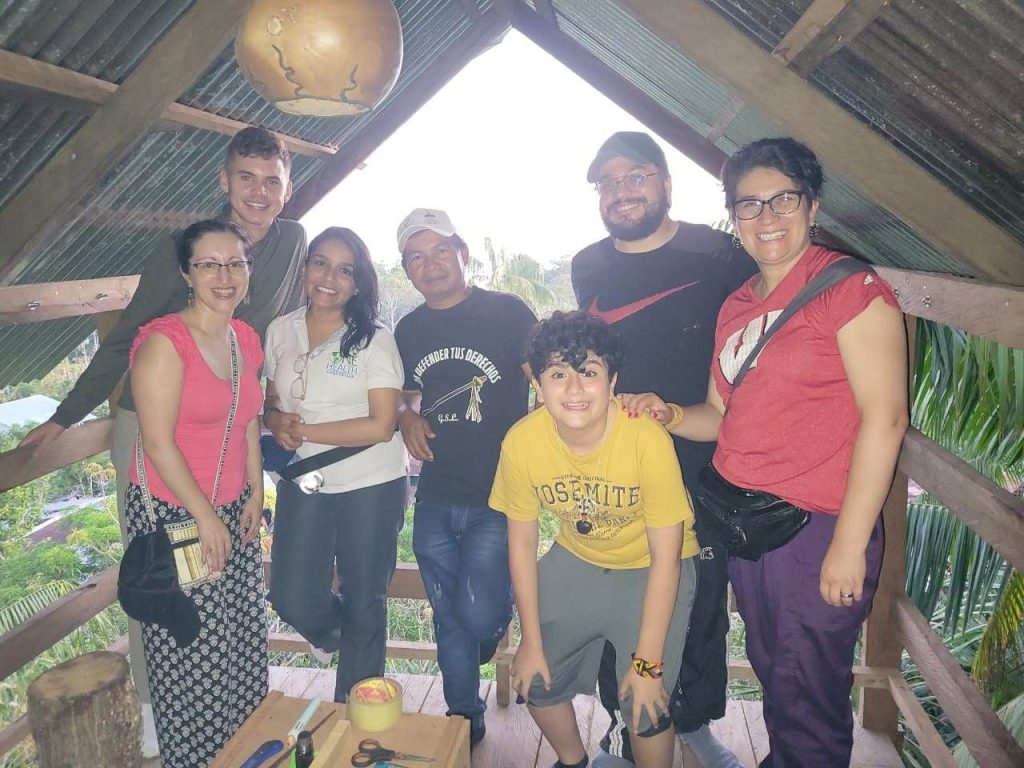
Olga Lucia Chaparro Africano, Sebastián Díaz, and Lina Paola Garzón Garzón doing fieldwork in Leticia, a city in the Colombian Amazonian region
By Kendall Buehl, GHI Staffer…Ever wondered what students do after they defend their dissertation and earn their PhD? One next step is continuing their research by pursuing a postdoctoral position. Here are three postdocs supported by GHI who are furthering their studies as they work at the crossroads of One Health in Colombia and Wisconsin.

Olga Lucia Chaparro Africano has lived and worked in the Amazon and humid tropic regions in Central America for over 25 years. Her focus has been on agri-food systems and strengthening the livelihoods of Indigenous and non-Indigenous rural communities. She earned a bachelor’s degree in biology, a master’s degree in environment and development, with an emphasis on ecological economics, and also a PhD in Amazon studies from Universidad Nacional de Colombia, which focused on public food policies.

Currently, Chaparro Africano is a postdoctoral researcher focusing on the relationship between sustainable agriculture, agri-food systems, security, food sovereignty, and health within the Indigenous Emberá population who were displaced from the Colombia Pacific, especially from Choco, Risaralda. Her work aligns with one of GHI’s Five Strategic Focus Areas – Resource Security: Food, Water & Energy.
Her work is supported through a collaboration with University of Wisconsin-Madison, UW–Madison Global Health Institute (GHI), Universidad Nacional de Colombia (UNAL), and GHI One Health Center-Colombia (GHI-OHC-Colombia) in Medellín.
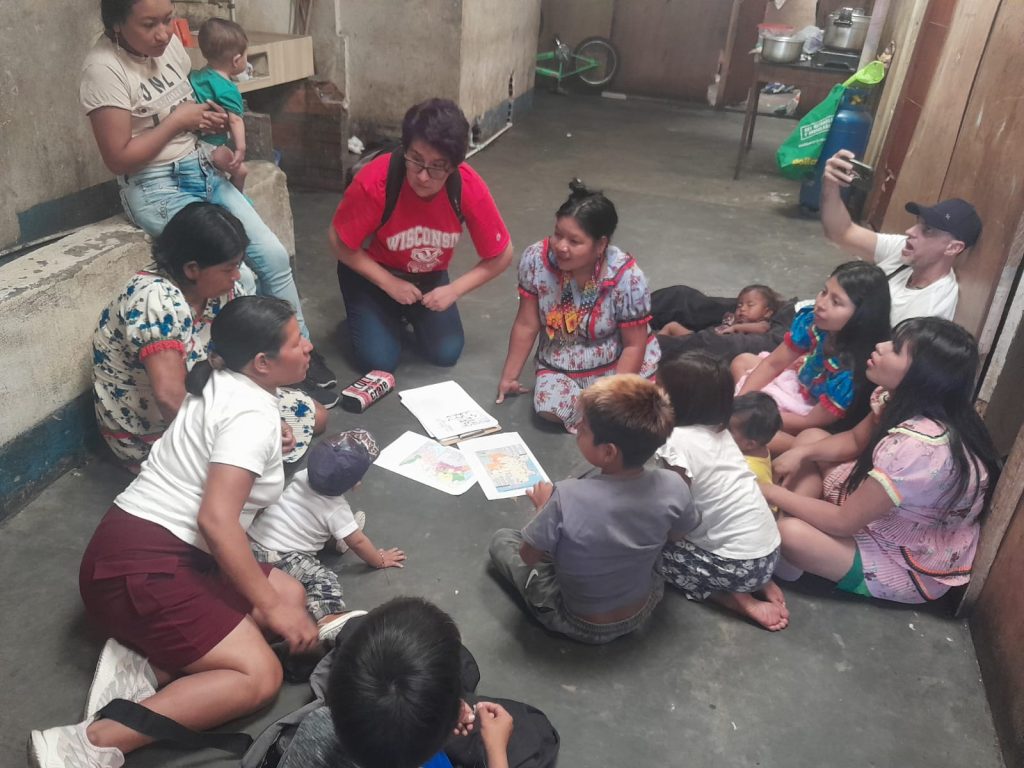
Chaparro Africano’s UW–Madison mentors are Nancy Kendall, professor of Educational Policy Studies in the School of Education, and Alberto Vargas, associate director of the Latin American, Caribbean and Iberian Studies Program (LACIS). Both are members of GHI’s Advisory Committee, and both have had a lasting impact on Chaparro Africano.
“Nancy Kendall recognizes, like me, the importance of involving the community in the research process and being respectful to build trust,” Chaparro Africano notes. “And through his guidance and freedom, Alberto Vargas has motivated me to give my best and to believe and value what I do. Alberto is a great person and teacher.”
Chaparro Africano’s work focus is to identify the health status, food situation, and reasons for displacement of Indigenous Emberá populations, which include seeking health care and education, avoiding armed conflict, and suffering from socio-territorial issues (for example: gold mining, illicit crops).

Her team has seen social injustices like the marginalization of Indigenous Peoples, their life of begging in the city of Medellín, and health risks such as the accumulation of mercury within the Emberá population – which continues to compromise food from their territory.
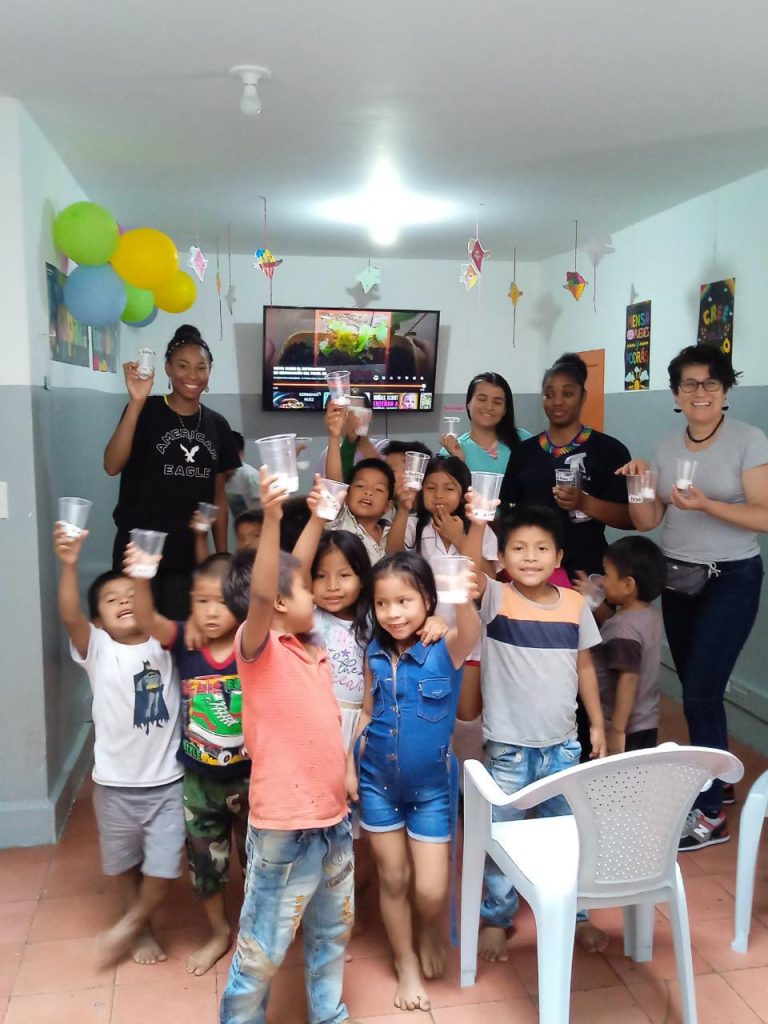
As for what inspired her to work in global health, Olga Lucia Chaparro Africano says although she is a biologist and zoo-technician, she recognized the importance of food and food systems when she became a mother.
“I remembered my mother’s teachings as a healing woman, which were like those of the Indigenous women with whom I have worked for more than 20 years in the Amazon,” Chaparro Africano shares. “My mom and the women taught me that food is life, and food is medicine.”
For Chaparro Africano, the future is exciting and guides her to see what has already been accomplished.
“The project carried out has made it possible to formulate a women and family program to try to improve the living conditions of displaced Emberá families who live in Medellín and who are linked to the Emberá House,” Chaparro shares. “As we continue assisting programs, we will begin community work with the Movement of Mining Women United by Colombia, who live in Choco and Northeast Antioquia with whom we are looking for resources to work on their health status and food security.”
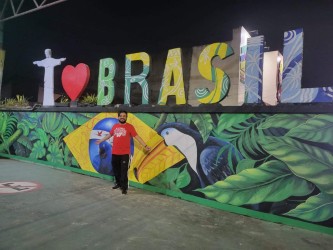
Sebastián Díaz is another postdoctoral researcher supported by UW–Madison, GHI, UNAL, and GHI-OHC-Colombia collaborations, but his background is a little different.
Díaz earned a bachelor’s degree in biology from Universidad de Antioquia in Colombia, a master’s degree in genetics and molecular biology from Universidade Federal do Rio Grande do Sul in Brazil, and a PhD in biology from Universidad de Antioquia in Colombia. His postdoctoral research focuses on gut microbiota of a Colombian Amazonian community in the process of urbanization. Specifically, Díaz works in the urban and rural areas of Leticia, a city located in the Southern point of the Colombian Amazon. His research highlights another GHI strategic focus area: Emerging Infectious Diseases.
Díaz highlights the willingness of his UW–Madison mentors in helping him while also giving him the freedom to research. His mentors are Amie Eisfeld, associate research professor, Jessica Hite, principal investigator, and Mostafa Zamanian, associate professor, all from the Department of Pathobiological Sciences in the School of Veterinary Medicine. Eisfeld, Hite, and Zamanian are also members of GHI’s Advisory Committee.
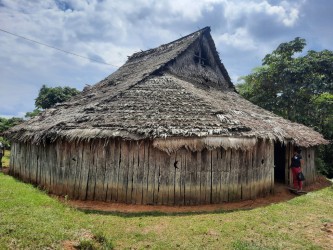
“Working with my UW mentors has been a great work experience,” Díaz recalls. “Although all the sequence data have been generated for them, they have given me all the freedom to explore the data and carry out the analysis, and later share the results with them in our meetings. This has led to a wonderful journey with a constant exchange of opinions, experiences, and knowledge where we all learned a lot about this fascinating field of microbiome science.”
His team worked with urban non-Indigenous and rural Indigenous populations, exploring their gut microbiota and parasite protists and worms, to make a meaningful discovery in urban areas of Leticia where they are starting to see a loss of bacteria associated with non-processed traditional diets, which has already been the case in the urban areas outside of the Colombian Amazonian region. They also found rates of soil-transmitted helminth infections are low for both sites, something explained by the intensive deworming campaigns carried out by the national government.
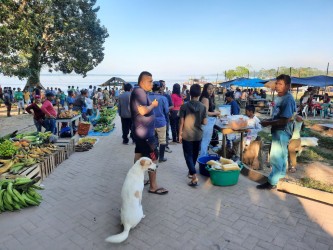
Sebastián Díaz’ inspiration to work in global health comes from a lifelong passion for biology.
“I always dreamed to become an explorer of biological diversity because every day you can discover something new,” Díaz responds. “All humans are like a world to explore, and every bacteria and microorganism inside us is a reflection of our lifestyle and culture. This diversity has widespread implications in our health.”
Díaz looks ahead toward his promising future where he expects to continue researching and innovating the health and wellness of various communities.
“We are close to publishing our main results and we expect to share them with the local community and their health authorities,” Díaz notes. “For the future, we hope this project can lead to new opportunities to focus on social health and well-being not only of Indigenous communities, but also other overlooked groups like Afro-Colombians, campesinos (rural farm workers), and displaced populations.”
Lina Paola Garzón Garzón is a postdoctoral researcher also supported by the UW–Madison, GHI, UNAL, and GHI-OHC-Colombia collaboration. Garzón earned a bachelor’s degree in microbiology from Universidad de Los Andes in Bogotá, Colombia, a master’s degree in sustainable development and environmental management from Universidad Distrital Francisco José de Caldas in Bogotá, and a PhD in Amazonian studies from Universidad Nacional de Colombia in Leticia, Amazonas, Colombia.
As a postdoc, her project focuses on attention and care practices for the management of vector borne diseases (VBD) in the Southern Colombian Amazon.
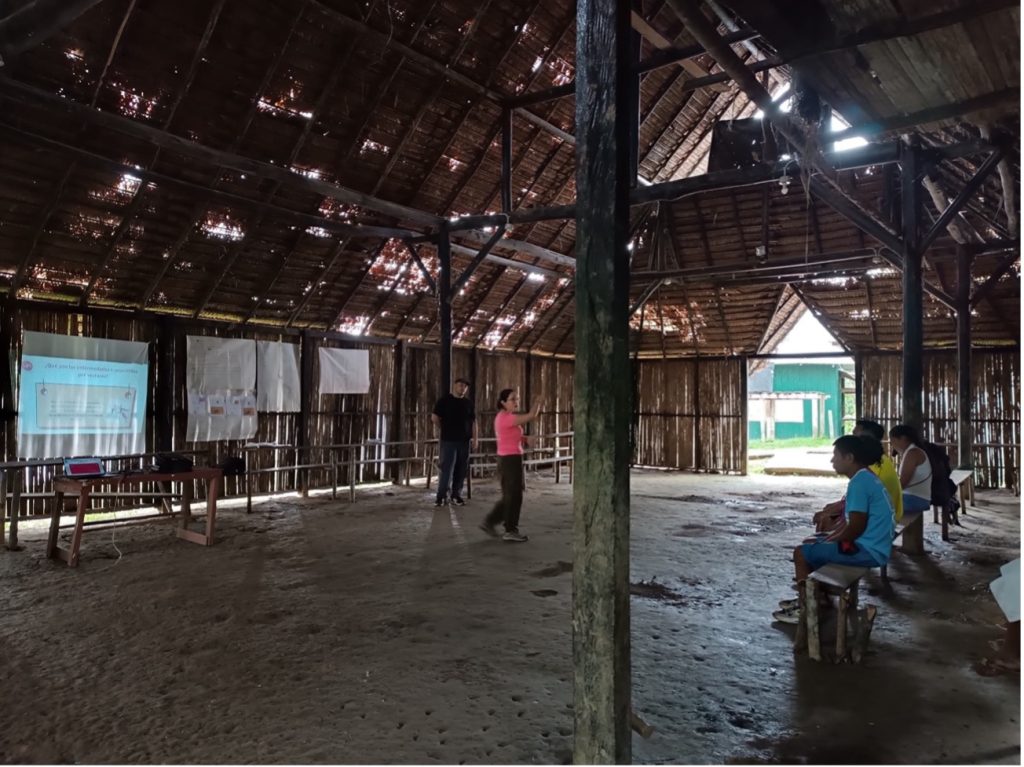
Garzón echoes Chaparro Africano’s praise when talking about Nancy Kendall, as Kendall is also Garzón’s UW–Madison mentor.
“It has been an enriching experience to have the support of my mentor in the postdoctoral program,” Garzón says. “I have learned from her background, especially in the area of education, and put her advice and comments into practice in the different activities I have done in the program. I have received her support in the revision of the activities scheduled for the program, the scope and outcomes of my research, the topics for potential papers, and my participation in academic events.”
Through conversations with healers, the Indigenous community of Puerto Esperanza, and public health professionals with the Department of Amazonas, Garzón and her team have evidenced low knowledge about VBD in this territory, especially Chagas disease and Leishmaniasis. The Indigenous population identifies Malaria and Dengue, although it lacks the proper knowledge and resources to identify the symptoms and vectors of each disease.
Likewise, health institutions such as Secretaría de Salud Departamental (Departmental Health Secretary), Oficina de Salud Pública de Puerto Nariño (Public Health Office of Puerto Nariño) and Health Providing Institutions (IPS acronym in Spanish) implement diverse promotion and prevention campaigns which seek to strengthen knowledge about these diseases. However, IPS recognizes it is necessary to promote intercultural strategies to improve the management of VBD in Indigenous communities.
In the learning spaces on VBD, which adults of Puerto Esperanza visit, the population has identified common names of the diseases, vectors, and medicinal plants in Spanish and Ticuna (the native language of the Ticuna people), making it easier for them to understand and treat these diseases. They have also identified prevention practices specific to their territory and their daily activities which complement those socialized by health institutions. Children have shown a high ability to identify and understand VBD using information from adult activities in the learning spaces.
In the activity of VBD socialization to the community carried out by children and adults, Garzón and her team observed it is easier for children to appropriate and communicate information about VBD to their family and other members of their community. The advances in her project provide evidence pointing to the active role of the community and the articulation of their medical traditional practices to care guidelines are fundamental aspects for the effective management of VBD in the Southern Colombian Amazon. Garzón’s project aligns with another one of GHI’s five strategic focus areas: Social, Cultural & Economic Equity.
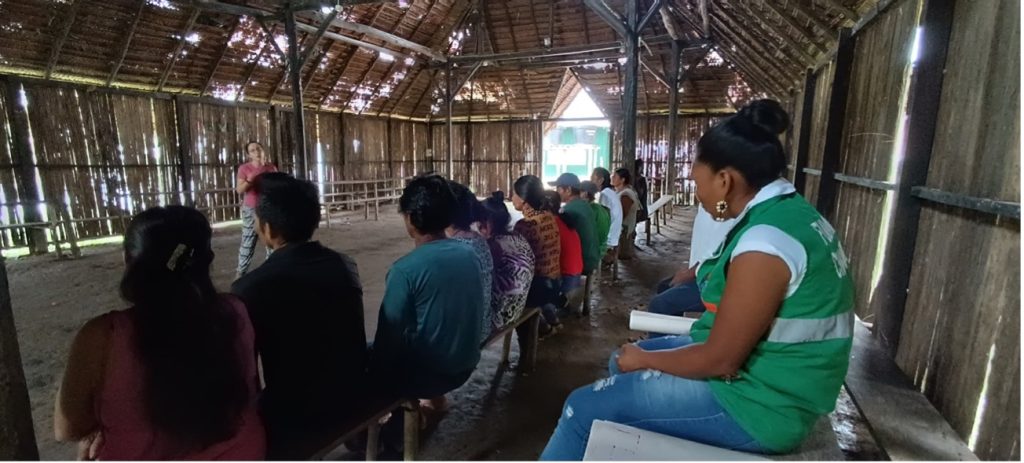
Lina Paola Garzón Garzón considers the active role and empowerment of the local population as a fundamental aspect of prioritizing local needs and expectations to improve well-being.
“My inspiration is the recognition of cosmovision (worldview), local knowledge, and traditional practices in science advancements and the construction of sustainable territories,” Garzón explains. “That is why I work in alliance with the local population, especially with Indigenous communities of the Amazon region, to valorize their traditional knowledge and articulate it with academic knowledge.”
Finally, Garzón shares some actionable steps she wants to take with her project after performing data analysis, processing botanical samples, and writing a technical document sharing the project’s results.
“To support the current campaigns of promotion and prevention of VBD in the Department of Amazonas, we will co-create with the community some audio records in Spanish and Ticuna languages with basic information about diseases, vectors, symptoms, treatment, and prevention,” Garzón explains. They will also co-create similar didactic materials and post to a website for greater accessibility. She plans to give all information and products to the community of Puerto Esperanza and to socialize the project results with health institutions and Indigenous organizations.
All that being said, it’s clear these postdocs will continue to innovate, collaborate, and connect Wisconsin and the World through their research and fieldwork.
Reflecting on their experiences, we see each postdoc holds a strong passion for helping others and advancing the research that fuels global health solutions. In addition to committing so fully to their causes, these postdoctoral students embody the fundamental purpose of the One Health approach. From cooperating with local communities in Colombia, to learning from UW–Madison mentors, they realize universal issues require universal solutions. But that’s not all. Chaparro Africano, Díaz, and Garzón have one more thing in common: their dedication to putting the Wisconsin Idea into global action.
If you want to connect or collaborate with Olga Lucia Chaparro Africano, Sebastián Díaz, or Lina Paola Garzón Garzón, contact us at GHI.
